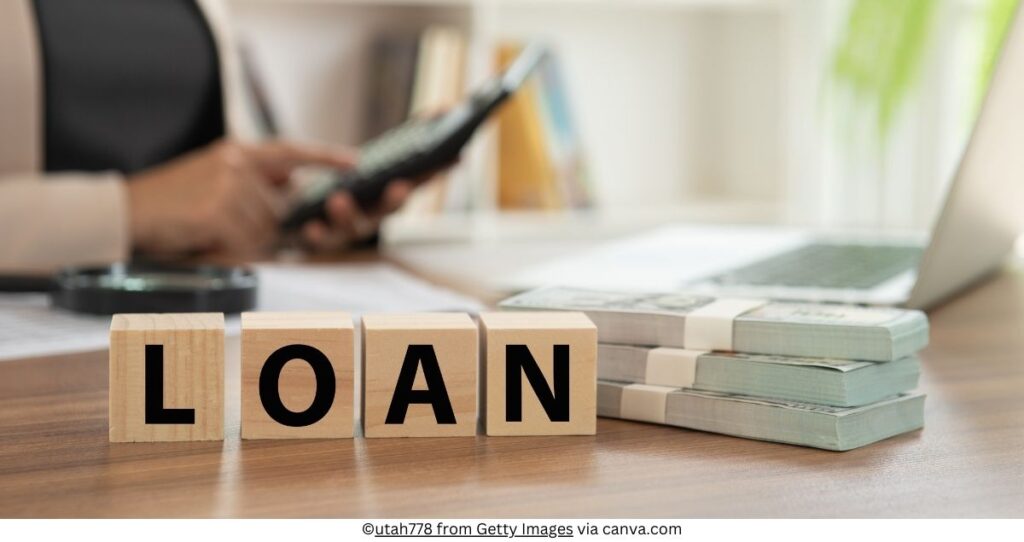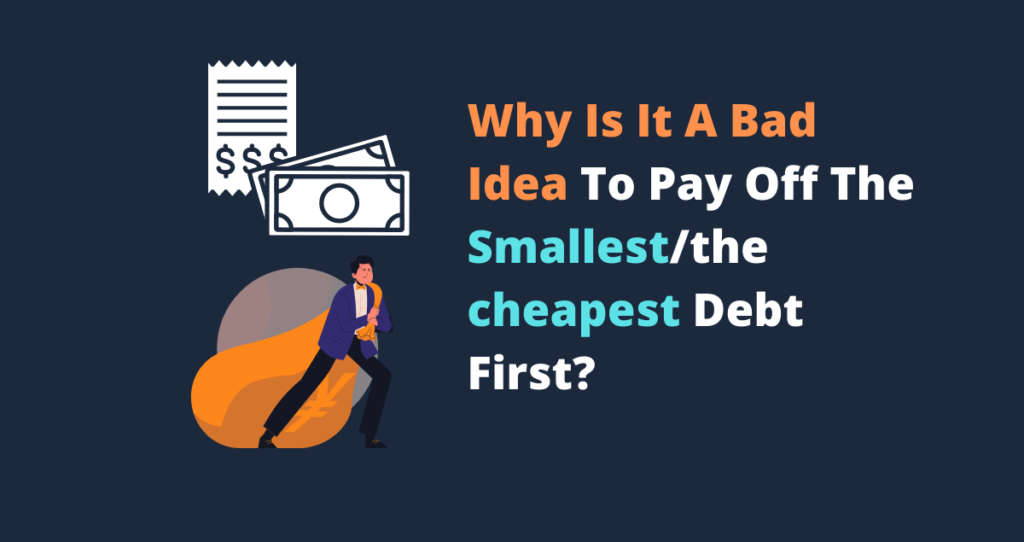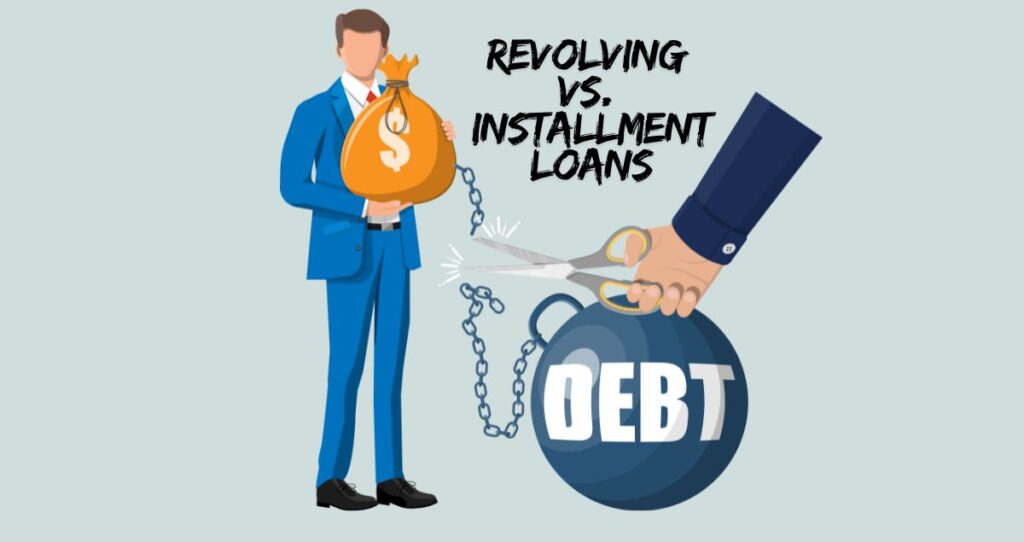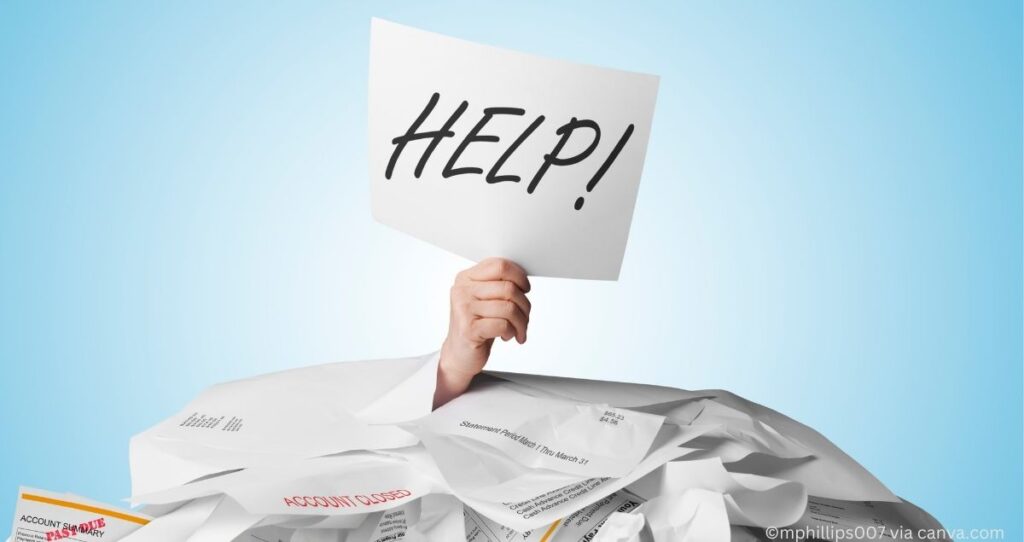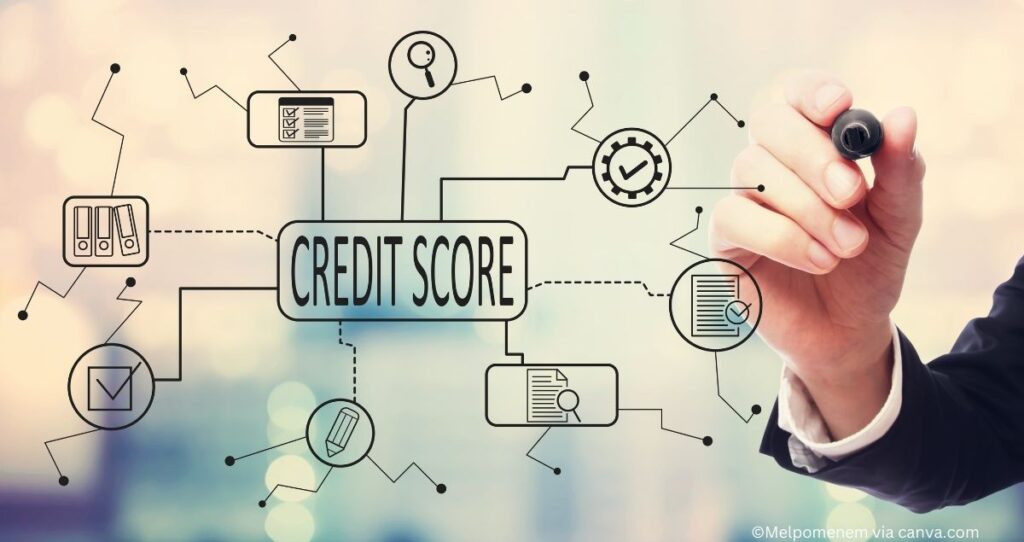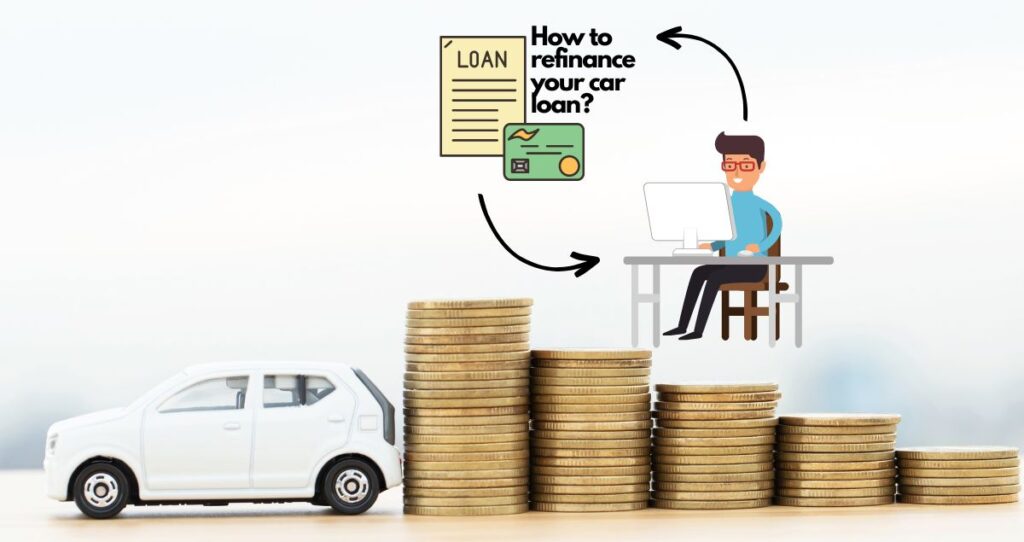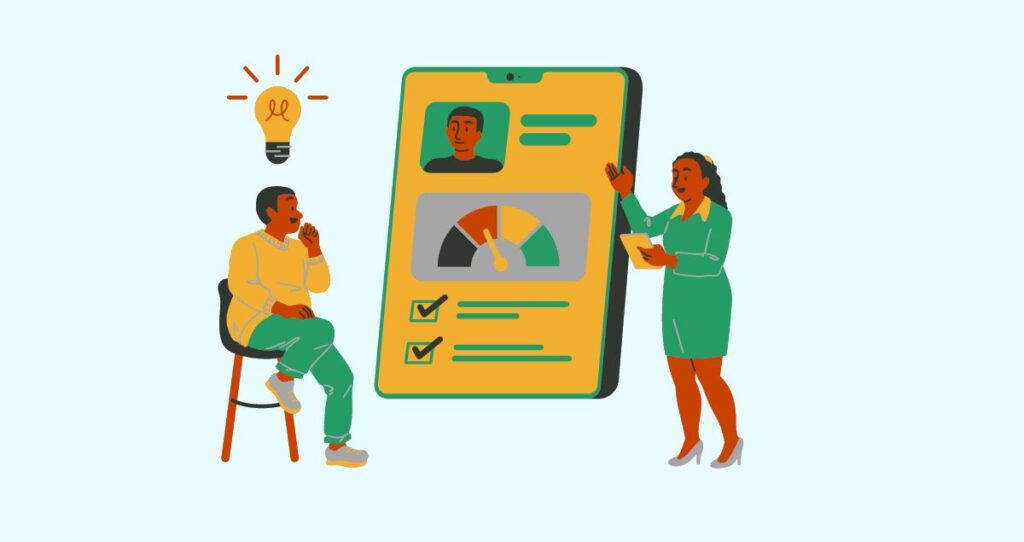If you are facing financial hardships, getting a personal loan can help to ease the pain. Loans can be good options under several circumstances, especially when faced with emergency expenses without enough savings. For example, if you just lost your job, have a sudden medical bill, or need to replace a leaky house roof, taking personal loans might be your only hope to finance these emergencies.
Personal loans are also good to use when dealing with multiple loans that are hard to pay off. For example, if you have too many credit card debts, you might find managing and paying them off challenging. In this case, you can use a personal loan to consolidate all your debts into one, making it easy to track, manage, and pay off. You can also use loans to refinance high-interest debt or when you need flexibility with your loans. Furthermore, loans are a good option to use when you are building credit. A good credit score is critical when applying for loans and credit cards as it helps you get approved for the loan and qualify for lower interest rates with favorable terms.
Read the full article to know when it makes sense to apply for loans.
1. Loans are good options to use for immediate financial needs
Personal loans can provide immediate funding for urgent financial needs such as medical emergencies, sudden home or car repairs, or a job loss. While you could use your emergency fund to cover these expenses, you might not have enough savings. Hence, this leads to using loans to avoid further financial complications.
One of the reasons many people take out loans is due to financial emergencies. Most people don’t save money, let alone create emergency funds. According to an online rolling survey published by YouGov, 12% of consumers do not have any savings to take care of their short-term emergencies, while 14% said they had less than $100 in their savings accounts. The same survey shows that about 13% of consumers have between $1,000 and $4,999 in their savings accounts. In other words, about 27% of consumers have less than $1,000 saved, while 12% have no savings. By combining these statistics, about 50% of Americans have less than $5,000 in their savings.
If you are among consumers without savings, you must use loans to finance short-term financial obligations. Where there is a lack of savings, personal loans become an alternative. For example, if you suddenly need $20,000 to fix a leaking roof, taking out a personal loan to repair your home will be a great idea.
2. Loans are good options to use for debt consolidation
If you have been dealing with debt for a while, you probably know that the more debts you have, the harder it is to pay them off. What is also true is that having a debt management strategy makes your life much easier. One of the best strategies to manage debt is to consolidate them. Debt consolidation refers to combining many debts into a single debt that makes it easy to manage your debts and pay them off.
Debt has become one of the biggest reasons millions of consumers never achieve financial freedom. According to the New York Federal Reserve data published in Money, the U.S. household debt is $17.5 trillion, with credit card balances making up about $1.13 trillion. Another report by Northwestern Mutual and Harris shows that average American consumers carried about $21,800 in personal debt in 2023. Money also reported that 35% of Americans said they are facing the most debt of their lives.
The point here is that debt has become the biggest killer of dreams for millions of people, and having multiple debts makes it difficult to pay them off. That is why using loans to consolidate multiple debts is a good option, as it helps you manage and pay off your debts faster.
For example, you can use personal loans to consolidate multiple debts like credit card balances. Another benefit of using loans to consolidate your debts is that you could qualify for a lower interest rate and favorable terms on your new loan. This can simplify your repayments, help improve your credit score, and potentially save you money on interest over time.
3. Loans are good options to lower interest rates on existing loans
With the interest rates skyrocketing due to inflation, any financial decision that lowers your interest rate should be cherished. Higher interest rates make your loan expensive and make your monthly payments unaffordable.
If you have too many loans that naturally come with higher interest rates and APR, you might need to lower these rates by using other loans with lower rates. For example, the average credit card APR is 24.37%, according to Investopedia. Having multiple credit card debts can easily cost you a lot of money. For this reason, it is a good option to use loans to consolidate your existing credit card debts or get a balance transfer, which involves putting your credit card balances on a lower APR credit card, usually with a 0% APR.
Another good reason to use personal loans is that they come with lower interest rates than credit card APRs, especially if you have a good credit score. For this reason, it would make sense to get a personal loan to help you pay off your credit card debt.
4. Personal loans come with flexibility
What makes personal loans a good option is their flexibility. When you take out a personal loan, you can use it for anything you want, assuming the lender allows you to do so. For example, you can get a personal loan for a home improvement project, travel, wedding, emergency expenses, debt consolidation, etc.
Personal loans are a great idea if you want to finance an expensive project but don’t have enough savings. Given your financial situation, the loan terms might also be flexible.
Personal loans differ from installment loans, such as car loans and mortgages. Unlike auto loans or mortgages, which must be used for specific purposes, personal loans can be used for anything the borrower needs. The more flexibility you have with the loan, the better the loan will serve your purpose.
Read more: What can a personal loan be used for?
5. Loans are good options to build credit history
If you are living in the 21st century, you already know that having good credit is essential for your loan application. Whether you want a car loan, a mortgage, a credit card, a personal loan, or a student loan, you need some form of credit to qualify for these loans. Some businesses and landlords also use credit scores to select the best candidates for jobs and tenants.
How does your credit score affect your loan application?
Lenders use your credit score to evaluate your creditworthiness. When you have a good credit score, lenders see you as a low-risk borrower. For this reason, you qualify for lower rates, more money, and favorable terms. If you have a bad credit score, on the other hand, your loan application might be rejected, and if you get approved for loans, you will pay a higher interest rate.
How do loans help you build credit?
If you have a thin credit file, starting with simple loans is a great option. For example, instead of borrowing $300,000 for a house, you can get a credit card or a personal loan. Lenders report your credit activities to major credit reporting agencies(Equifax, Experian, and TransUnion) to make credit reports. Credit scoring agencies then use information from your credit reports to calculate your credit score.
The idea here is that loans are good options when building a credit history and improving your credit score.
If managed responsibly, a personal loan can help build or improve your credit score by adding a different type of credit to your profile and showing your ability to make regular, on-time payments. This can benefit you when applying for other forms of credit or loans.
You might also like Tips to get an 800 credit score easily.
How much can you borrow in personal loans?
The amount you can borrow in personal loans largely depends on several factors, including your credit score, income, employment stability, existing debts, and the lender’s policies. Some lenders offer personal loans ranging from $1,000 to $50,000, while others may offer up to $100,000 to borrowers with excellent credit and high income.
While your lender might approve you for a higher amount, only borrow what you need and pay it off fast to avoid unnecessary debt. You shoudl also shop around and compare loan terms from different lenders before making a decision.
You might also like: How much can I borrow with a personal loan?
3 pros of using personal loans to make a purchase
Using personal loans to make purchases might be a good idea, depending on your situation. Here are three ways when it makes sense to use personal loans to make a purchase.
- Immediate access to cash. If you want to make an expensive purchase but don’t have funds, a personal loan will be an excellent way to finance your purchase. For example, if you want to pay for an expensive car repair but don’t have enough cash, a personal loan can provide the necessary capital much more rapidly than saving money over time.
- Flexible terms. Personal loans typically come with the flexibility of setting a payment term that suits your ability to repay the loan. This flexibility helps you create a budget and make payments that match your financial situation.
- Improve your credit score. If managed well, a personal loan could help improve your credit score. Regular and timely payments are reflected positively on your credit history, indicating to lenders that you’re a responsible borrower. This improved credit rating can offer better interest rates and loan terms.
3 cons of using loans to finance a purchase
While using personal loans gives you easy access to cash and can help you build credit, personal loans also come with cons you should know. Here are the top three cons of using personal loans to make a large purchase.
- High interest rates. Personal loans often have higher interest rates than installment loans. This means you end up paying much more for the purchase than the actual price due to higher interest charges.
- Debt cycle risk. Using loans to finance a large purchase can lead to a debt cycle. If you cannot repay your loan on time, you may take out another loan to cover the first, leading to a spiral of increasing debt that can be difficult to overcome.
- Negative impact on your credit score. If you fail to repay your loan installments on time, it can severely affect your credit score. A low credit score can make it substantially more challenging to secure loans or credit in the future and often results in higher interest rates when you manage to obtain a loan.
What is a positive reason for using a credit card to finance purchases?
Using a credit card to finance purchases comes with flexible payment options. Instead of paying the full amount of a purchase upfront, credit cards allow you to spread the cost of the purchase over a longer time in manageable monthly payments. Additionally, many credit cards offer rewards programs with benefits like cash back, travel miles, or points.
What are the benefits of having a credit card?
Easy access to funds. A credit card can provide financial flexibility and convenience, allowing you to make purchases even when you don’t have the cash immediately available.
You can build credit with a credit card. Regular and responsible credit card use helps you build a solid credit history, which comes in handy when applying for loans, renting apartments, or even in some job applications.
You get rewards and other benefits. Many credit cards come with a variety of rewards programs and benefits. These may include cash back on purchases, points that can be redeemed for goods or services, and benefits such as travel insurance or extended warranties on purchased items.
Fraud protection. Warranty protection against theft and unauthorized transactions is another benefit of many credit cards, but it is not always the same for debit cards.
Credit cards are widely accepted worldwide, making them a convenient option for international travel.
More loan tips
How can you reduce your total loan cost?
